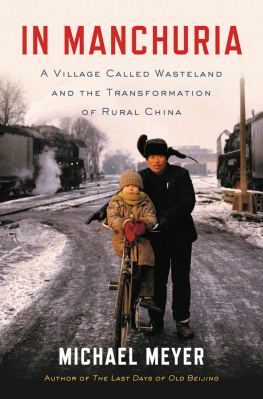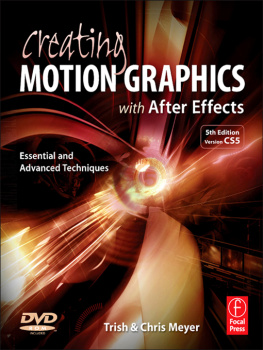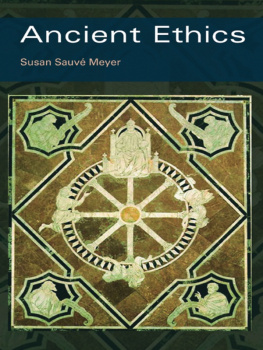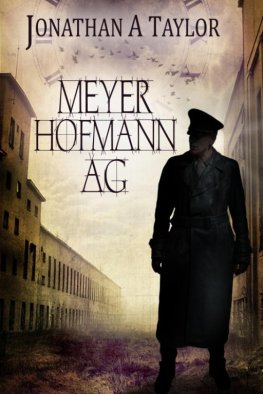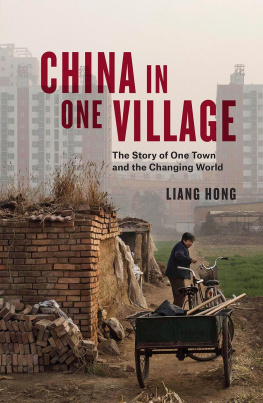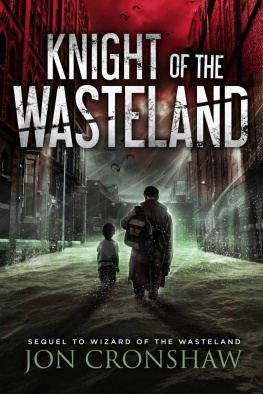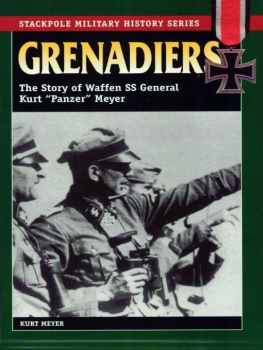My thanks go first to the residents of Wasteland who welcomed me into their homes, classrooms, offices, and fields. Im particularly indebted to the Guans, Auntie Yi, Uncle Fu, and San Jiu.
For the research it allowed, Im grateful for financial support from the Mrs. Giles Whiting Foundation, the John Simon Guggenheim Memorial Foundation, the Rockefeller Foundation Bellagio Center, and the Dorothy and Lewis B. Cullman Center for Scholars and Writers at the New York Public Library.
At the latter, librarians Sumie Ota and Rebecca Federman went above and beyond in hunting down materials, while Marie dOrigny and Jean Strouse gave support and good cheer. ???! Im also thankful for Mari Nakaharas help at the Library of Congress in locating South Manchuria Railway gazetteers, and to David Ferriero, archivist of the United States, for assistance with Operation Cardinal and Japanese war crimes in Manchuria.
Being a freelance writer in China brings challenges beyond not having a business card, staff, and expense account. Im grateful to editors who showed interest in stories from a place none had been to and few had even heard of: Don Belt and Oliver Payne at National Geographic , Tom Miller at China Economic Quarterly , Richard Story at Departures , Chris Hill at DestinAsian , Jennifer Schuessler at the New York Times Book Review , Susan Jakes at the Asia Societys ChinaFile , and Miki Meek, Julie Snyder, and Ira Glass at This American Life .
In Shenyang, I benefited from Doug Kellys knowledge and love of the region, along with then consul general Sean Stein. Thanks, too, for conversations with David Douglas, Liu Haiping at Nanjing University, Anke Scherer, Eva Pils, Dan Abramson, Ping Kiang, Jeremy Zwinger, Ron Suleski, Jeffrey Wasserstrom, Rana Mitter, David Spindler, and Tom Gold. Zhu Keliang at Landesa untangled the ball of yarn that is Chinese land rights, Michael Hunt helped with the mystery of Nelson Fairchilds suicide, Mark Elliot taught me the etymology of Manchuria , and Stephen Wadley translated the zidi shu that appears in the epigraph. Peter Conn illuminated Pearl Bucks fascinating life. The New York Times Jim Yardley lent a hand in locating survivors of the Shenyang POW camp, as did Andrew Jacobs with the siege of Changchun. Thanks to the Asahi Shimbun s Ishida Koichiro for assistance in Dunhua, and Tomoaki Fujiwara for introductions to repatriated orphans in Tokyo. Finally, Im grateful to Akira Nagamine (assisted by his daughter Janet) and Harold Leith (assisted by his wife, Helen) for sharing their war stories, too.
My mother-in-law, Cheng Zhaohua, and Gillian Riffe helped both in Manchuria and on the home front. I benefited, too, from the friendship and encouragement of Ron Gluckman, Mike Goettig, Ian Johnson, Mark Leong, and Luke Mines. Cheers, too, to (Dr.!) Travis Klingberg for egging me onward. Matt Forneys Fathom China staff helped with due diligence on Eastern Fortune Rice, while Matton a visit to a Red Flag Logging Commune with his son Roycrashed our Red Flag sedan into an oncoming Liberation truck. I stuck to trains after that; thanks, Matty.
For close reading of the manuscript and critical comments, Im indebted to Nicholas Griffin, Adam Hochschild, and Peter Hessler. Adam, youre the best teacher a student could ever hope for. Pete: Call Molo, because I owe you one.
Likewise, Im indebted to my agent, Georges Borchardt, and publisher, George Gibson, for unflagging patience, edits, and support.
Frances and I met in 1997 , and I find it hard to believe that, as I write this, were approaching the seventeenth anniversary of our first date. Where did the time go? (Hey, where do these stairs go? They go up. ) Words cant express my gratitude for the friendship, support, laughter, and the family we share. Im typing this with Benjamin, age two, on my lap, ukulele in hand, demanding to hear The Wheels on the Bus yet again. Benji, ?? (arent you glad we didnt name you Wasteland, ?? ?), one day youll tire of this song and demand your dad supply other diversions. These pages tell what your parents were up to before you arrived and made our lives even better. You, son, are the meaning. ?????
Published Sources
(Where a formal English translation appears on the cover of a Chinese-language text, I have listed it. In other cases, the translation is my own.)
Amurs Siren Song, The: The Long River That Marks the Border Between Russia and China Has Proved to Be a Site of Dashed Hopes. Economist , December , 2009 .
Atiyah, Jeremy. The Whole Point of Manchuria Is to Make Everything Else on Earth Seem Really Quite Nice. Independent , January , 2000 .
Bakich, Olga. Emigre Identity: The Case of Harbin. South Atlantic Quarterly , no. 1 ( Winter 2000 ); Raleigh: Duke University Press, pp. .
Barboza, David.
. In China, Wholesale Urban Flight. New York Times , November , 2005 .
Auditor Warns of Risks from Local Debt in China. New York Times , June , 2011 .
Barrionuevo, Alexei. Chinas Interest in Farmland Makes Brazil Uneasy. New York Times , May , 2011 .
Bell, John. A Journey from St. Petersburg to Pekin, 1719 . Edinburgh: University Press, 1965 .
Benson, Richard. The Farm: The Story of One Family and the English Countryside . London: Penguin, 2005 .
Blair, Clay. The Forgotten War: America in Korea, 1950 1953 . New York: Times Books, 1987 .
Boehler, Patrick.
. Report Points to Local Opposition to Beijings Land Reform Efforts. South China Morning Post , September , 2013 .
. Anti-Corruption Scholar Yu Jianrongs Rural Renewal Project Stalls. South China Morning Post , October , 2013 .
Bogan, M. L. C. Manchu Customs and Superstitions . Tientsin: China Booksellers, Ltd., 1928 .
Bradsher, Keith. U.N. Food Agency Issues Warning on China Drought. New York Times , February , 2011 .
Bray, Francesca.
. Science and Civilisation in China. Vol. : Biology and Biological Technology. Part II: Agriculture (Joseph Needham, ed.). Cambridge: Cambridge University Press, 1984 .
. The Rice Economies: Technology and Development in Asian Societies . Berkeley: University of California Press, 1986 .
Breidenbach, Joana (ed.). China Inside Out: Contemporary Chinese Nationalism and Transnationalism. Budapest: Central European University Press, 2005 .
Brooke, Lord. An Eye-Witness in Manchuria . London: Eveleigh Nash, 1905 .
Brougher, William Edward. South to Bataan, North to Mukden: The Prison Diary of Brigadier General W. E. Brougher . Athens: University of Georgia Press, 1971 .
Bruning, John R. Crimson Sky: The Air Battle for Korea . Dulles: Potomac Books, 2005 .
Buck, David D. Railway City and National Capital: Two Faces of the Modern in Changchun. In Esherick, Joseph W. (ed.). Remaking the Chinese City: Modernity and National Identity, 1900 1950 . Honolulu: University of Hawaii Press, 1999 .
Buck, John Lossing.
. Chinese Farm Economy: A Study of , Farms in Seventeen Localities and Seven Provinces in China . Chicago: University of Chicago Press, 1930 .
. Land Utilization in China: A Study of , Farms in Localities, and , Farm Families in Twenty-two Provinces in China, 1929 . New York: Paragon, 1964 .
. Three Essays on Chinese Farm Economy . New York: Garland, 1980 .
Buck, Pearl S.
. The Good Earth . New York: John Day, 1931 .
. My Several Worlds . New York: John Day, 1954 .
. China As I See It . New York: John Day, 1970 .
. China Past and Present : New York: John Day, 1972 .
Building Excitement: Can China Avoid a Bubble? Economist , March , 2011 .
Burns, John. Harbin, Near Disputed Soviet Border, Retains Vestiges of Russian Influence. New York Times , January , 1974 .
Buruma, Ian. A Chinese Box: In Manchurias Boom, Echoes of a Japanese Utopia. Harpers ( 1994 ): pp. .
Canaves, Sky. Editor Who Authored Chinese Editorial on Reform Ousted by Authorities. Wall Street Journal , March , 2010 .
Next page
